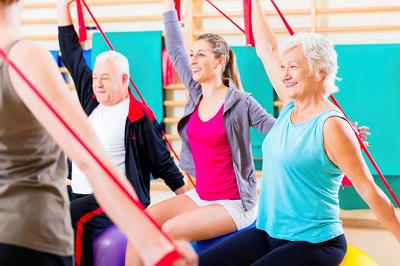Doing lots of exercise in older age can prevent the immune system from declining and protect people against infections, scientists say.
They followed 125 long-distance cyclists, some now in their 80s, and found they had the immune systems of 20-year-olds, according to BBC.
Prof Norman Lazarus, 82, of King’s College London, who took part in and co-authored the research, said: “If exercise was a pill, everyone would be taking it.
“It has wide-ranging benefits for the body, the mind, for our muscles and our immune system.”
Prof Janet Lord, director of the Institute of Inflammation and Ageing, at the University of Birmingham, and co-author of the research, said: “The immune system declines by about 2-3% a year from our 20s, which is why older people are more susceptible to infections, conditions like rheumatoid arthritis and, potentially, cancer.
“Because the cyclists have the immune system of a 20-year-old rather than a 70- or 80-year-old, it means they have added protection against all these issues.”
The researchers looked at markers in the blood for T-cells, which help the immune system respond to new infections.
These are produced in the thymus, a gland in the chest, which normally shrinks in size in adulthood.
They found that the endurance cyclists were producing the same level of T-cells as adults in their 20s, whereas a group of inactive older adults were producing very few.
The researchers believe that being physically active in old age will help people respond better to vaccines, and so be better protected against infections such as flu.
H.Z

